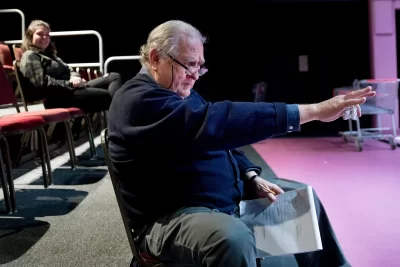Bates utilizes an “Advising Team” approach whereby each student has a network of support. In the BatesReach system, this network is referred to as “My Success Network,” and it includes 1) a student’s Academic Advisor, 2) Student Support Advisor, 3) Athletic Coach (if the student is a student-athlete), and 4) all of the student’s faculty instructors during a given semester.
Each first-year student has a set of three advisors–their Academic Advisor, their Student Support Advisor, and their Junior Advisor–and each has a different role. The Academic Advisor is most often a student’s First-Year Seminar until the student declares a major. Then the academic advisor is a faculty member in that major field of study (if a student declares two majors, they work with an Academic Advisor in each field of study, and if a student declares a minor, they also have an Academic Advisor in that minor field of study). Here is a bit more information about each role:
Academic Advisor: Until a student declares a major (no later than March 1 of their second year), their pre-major academic advisor is most often their First-Year Seminar instructor. Once a student declares a major, a faculty member within that academic unit becomes their academic advisor. The academic advisor helps students explore the curriculum to discover their interests and to fulfill general education requirements, e.g., 5 Mode of Inquiry credits, Major + 1 (where the “+ 1” can be a second major, a minor, or a General Education Concentration), 3 W credits, 32 total credits toward degree (including 2 short-term courses, each short-term course counts as 0.5 credits).
Student Support Advisor (SSA): The Student Support Advisor supports student success by ensuring they know whom to go to when they need guidance, assistance, or just someone to talk to. Students are assigned a Student Support Advisor prior to their matriculation and remain with their advisor for the duration of their enrollment at Bates. While your pre-major academic advisor – who is your First-Year Seminar (FYS) instructor – provides the primary academic advising for students, Student Support Advisors are an additional point of contact and support for students who have concerns or questions about their academic plans.
Residential Junior Advisor (JA): At Bates, all first-year students live within First-Year Centers in the residence halls. Each FYC has an assigned junior advisor (a residential advisor often a sophomore or junior) who serves as a key peer resource to assist students in navigating opportunities at Bates. Most common questions about residence life at Bates, e.g., housing accommodation, roommate information, etc., are answered at the Office of Residence Life and Health Education website.
Writing Course-Attached Tutor (W-CAT): At Bates, all first-year students enroll in a First-Year Seminar (FYS) during their Fall semester. Each FYS includes a peer writing tutor, who is a sophomore, junior, or senior who serves as a key resource to assist students in developing their writing and communication skills within the FYS. First-year students can meet with their FYS W-CAT throughout the Fall semester to review FYS assignments with them as well as to get assistance on the First-Year Experience Workshops, which are tethered to the FYS. The W-CATs are part of the student staff at the Student Writing and Language Center, which is part of the Peer Learning Commons. The Peer Learning Commons is on the Ground Level of Ladd Library.
